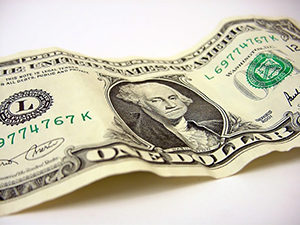 Living wage, minimum wage, fair wage… There are many views on what these phrases mean and how best to apply them in the United States. On Friday, 20 states and 32 cities and counties will raise their minimum wage. In 27 of these places, the pay floor will reach or exceed $15 an hour, according to a report released on Thursday by the National Employment Law Project, which supports minimum-wage increases. How will these increases affect small businesses and workers who may actually stand to lose their jobs because of the new rules? Read more here, Once a Fringe Idea, the $15 Minimum Wage Is Making Big Gains.
Living wage, minimum wage, fair wage… There are many views on what these phrases mean and how best to apply them in the United States. On Friday, 20 states and 32 cities and counties will raise their minimum wage. In 27 of these places, the pay floor will reach or exceed $15 an hour, according to a report released on Thursday by the National Employment Law Project, which supports minimum-wage increases. How will these increases affect small businesses and workers who may actually stand to lose their jobs because of the new rules? Read more here, Once a Fringe Idea, the $15 Minimum Wage Is Making Big Gains.
Category: Personal Finances
Employer-Paid Tuition Assistance
 Does your employer offer tuition assistance? If so, you may also be entitled to a tax write-off from these loans as well. Eligible expenses often include, books, tuition and fees, as well as supplies and equipment. If you receive more than $5,250 in a year, you must include the excess amount in taxable income. Also, qualified expenses used to justify your employer tuition assistance may not be used toward any other federal education tax benefits. For more information about these benefits, read: Employer-Paid Tuition Assistance.
Does your employer offer tuition assistance? If so, you may also be entitled to a tax write-off from these loans as well. Eligible expenses often include, books, tuition and fees, as well as supplies and equipment. If you receive more than $5,250 in a year, you must include the excess amount in taxable income. Also, qualified expenses used to justify your employer tuition assistance may not be used toward any other federal education tax benefits. For more information about these benefits, read: Employer-Paid Tuition Assistance.
Best Practices Financial Q & A
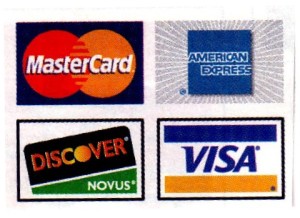 Ever wonder about the best way to handle certain financial needs? Liz Weston for LA Times Business offers insight into these three situations: hospital bills, home ownership, and retirement savings. Read more for quick tips that can help you make the most of your money. For example, did you know that most hospitals offer financial assistance at low or no interest to patients who qualify?
Ever wonder about the best way to handle certain financial needs? Liz Weston for LA Times Business offers insight into these three situations: hospital bills, home ownership, and retirement savings. Read more for quick tips that can help you make the most of your money. For example, did you know that most hospitals offer financial assistance at low or no interest to patients who qualify?
Here’s why you shouldn’t put that huge hospital bill on a credit card
Living Off Your 401K?
 Recently unemployed? Considering dipping into your 401K to stay afloat? Here are some options to consider. Fees are waived for withdrawals made from 401K accounts. Taxes must be paid but can be spread over three years. These are some of the most lenient restrictions ever imposed. Even if you decide not take money out of your account, you may want to consider moving your 401K into an IRA. Mark Miller for the New York Times in his article, Lost Your Job but Still Have a 401(k)? Here’s What to Do With It, offers advice and tips on best managing your retirement funds and money for daily living during this turbulent time.
Recently unemployed? Considering dipping into your 401K to stay afloat? Here are some options to consider. Fees are waived for withdrawals made from 401K accounts. Taxes must be paid but can be spread over three years. These are some of the most lenient restrictions ever imposed. Even if you decide not take money out of your account, you may want to consider moving your 401K into an IRA. Mark Miller for the New York Times in his article, Lost Your Job but Still Have a 401(k)? Here’s What to Do With It, offers advice and tips on best managing your retirement funds and money for daily living during this turbulent time.
Honesty in Spending
Have you ever been guilty of making a purchase and not telling your partner? What about buying something and then altering the actual cost when forced to admit your indiscretion?
Many couples fall prey to these kinds of buying practices says Jancee Dunn for the New York Times in her article, Your Cheatin’ Wallet. Read more to see how important it is to move towards total financial transparency with your partner and what pitfalls may arise if you don’t.
Make the Best of Black Friday
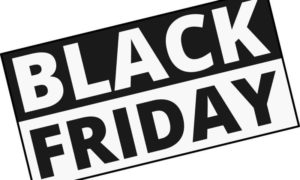 Want to get the best deals and save the most money on Black Friday? Elissa Sanci for Smarter Living, The New York Times offers tips and shopping best practices in her article: 5 Things to Avoid on Black Friday
Want to get the best deals and save the most money on Black Friday? Elissa Sanci for Smarter Living, The New York Times offers tips and shopping best practices in her article: 5 Things to Avoid on Black Friday
Black Friday is a money- and time-sucking vortex. Here’s what not to do this year. She highlights her list with entertaining anecdotes of those who fell victim to the seemingly needed purchases and makes recommendations for how to avoid these pitfalls.
Too Good to be True?
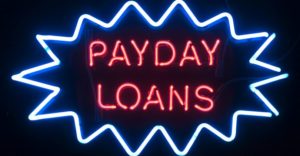 Earnin, the latest iteration of payday lending that advertises a no-fee, but tips appreciated model seems too good to be true. Their website boasts having raised over $190 million from investors. Venture capitalists tend to be well informed individuals with a sense for solid business plans and they’ve given Earnin a large amount of money. The pay-it-forward model sounds great and even feels warm and fuzzy, but can it last?
Earnin, the latest iteration of payday lending that advertises a no-fee, but tips appreciated model seems too good to be true. Their website boasts having raised over $190 million from investors. Venture capitalists tend to be well informed individuals with a sense for solid business plans and they’ve given Earnin a large amount of money. The pay-it-forward model sounds great and even feels warm and fuzzy, but can it last?
Column: It’s called Earnin. I have no idea how the company ever turns a profit
To Buy or Not To Buy
 How closely do you monitor your personal spending? Are you worried that every cup of coffee may break the bank? Tim Hererra for the New York Times has some great advice and encouragement for you. Check out his article, Here’s Some Money Advice: Just Buy the Coffee, and for more budgeting with “big picture” finance tips try their 7-day Money Challenge.
How closely do you monitor your personal spending? Are you worried that every cup of coffee may break the bank? Tim Hererra for the New York Times has some great advice and encouragement for you. Check out his article, Here’s Some Money Advice: Just Buy the Coffee, and for more budgeting with “big picture” finance tips try their 7-day Money Challenge.
Go Tax Paperless
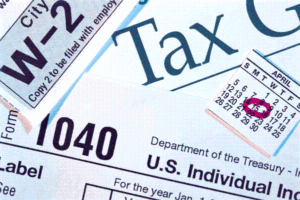 Ready to ditch your file cabinet? Explore going paperless with your tax documents. A great start is organizing your files using a document scanner. Many of these have wifi capabilities and function as part of your at-home network. Shredding old paper documents helps protect against identity theft.
Ready to ditch your file cabinet? Explore going paperless with your tax documents. A great start is organizing your files using a document scanner. Many of these have wifi capabilities and function as part of your at-home network. Shredding old paper documents helps protect against identity theft.
Once your scanning is complete, create one file on your computer to hold these documents. Be sure to back-up your documents in more than one place, such as on a flash drive, external drive, or a personal cloud. Experts suggest keeping these files for up to seven years. Make collecting this information easy by tracking receipts and invoices with simple budgeting apps and watch the clutter in your home office disappear. Want to learn more? Click here: How to Go Paperless in Your Home Office
How The Younger Set Lives
 Millennials are getting the raw end of the deal. Both state and national policies tend to favor the older and more affluent. Medicare costs often outweigh money paid in taxes by those who benefit, and programs that support higher education have been cut, leaving students with more debt. The millennials of our country have flat incomes and wealth is down.
Millennials are getting the raw end of the deal. Both state and national policies tend to favor the older and more affluent. Medicare costs often outweigh money paid in taxes by those who benefit, and programs that support higher education have been cut, leaving students with more debt. The millennials of our country have flat incomes and wealth is down.